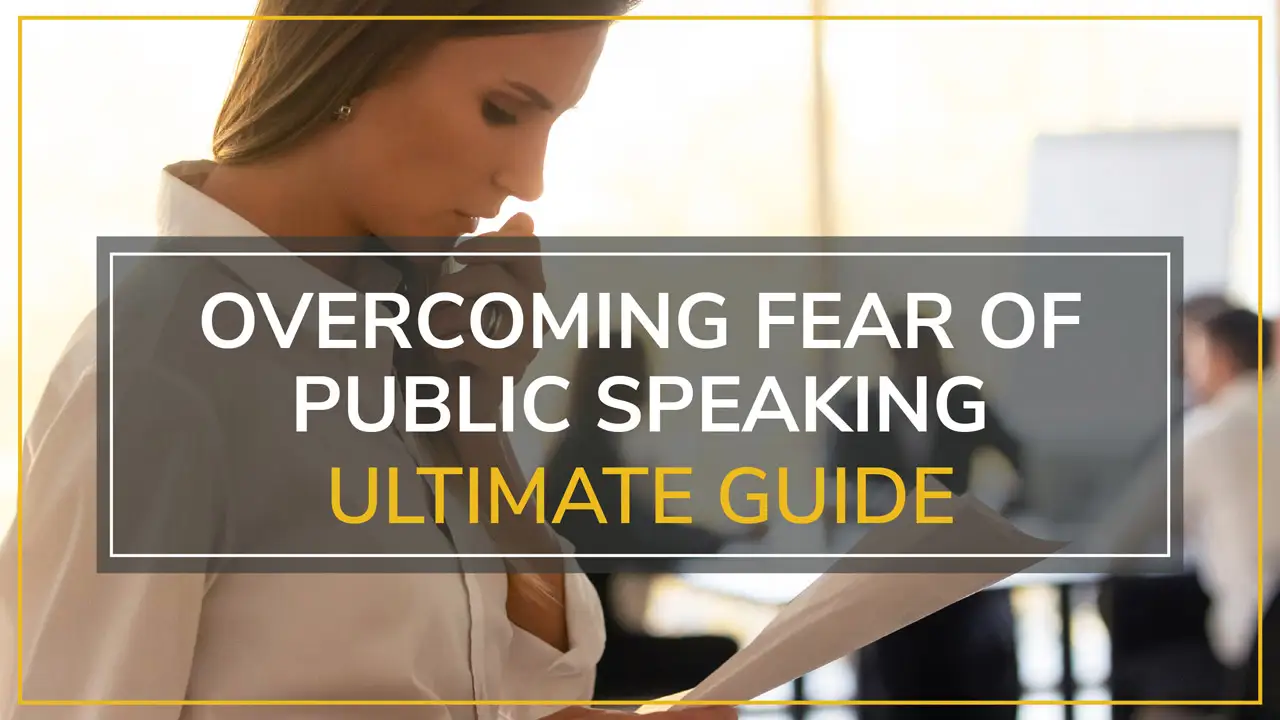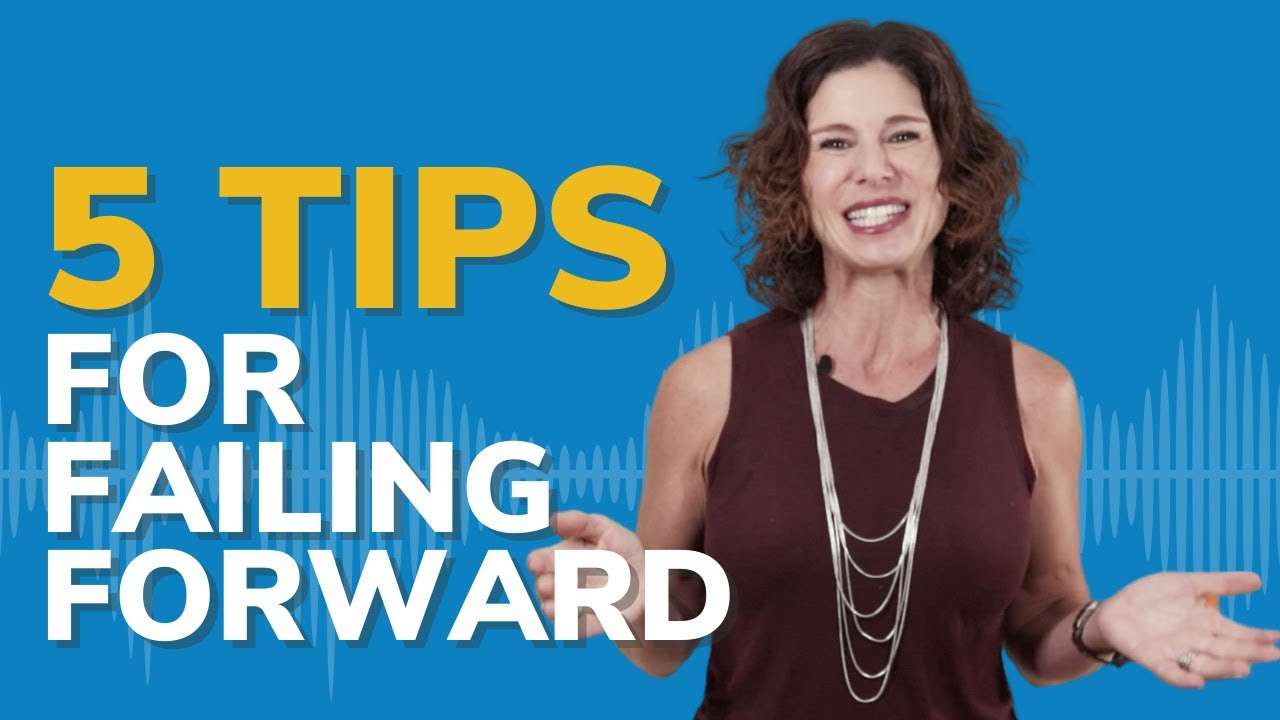Have you ever wondered how confident people get that way?
Confident people aren’t born naturally confident. Confidence is actually a skill that you learn, develop, and practice. Yes! it’s true, it is a skill that you can continuously develop through constant practice.
Today on The Moxie Talk Blog, we will discuss and unpack 5 ways you can build confidence.
—
Hi everyone, I’m Fia Fasbinder. Welcome to Moxie Talk where we help you find your voice, share your message, and lead with confidence.
Speaking of confidence…
As Aristotle once said,
You are what you repeatedly do.
One of my favorite quotes! Or as I like to say,
‘Confidence is the side effect of hustle.’
So if we are what we repeatedly do, can we do the things that confident people do to become more confident?
I 100% believe that this is true. I’ve experienced this not only in my own life but in my work with clients helping them to have more confidence in their public speaking. I believe it so wholeheartedly that I built my entire company around a word that means confidence—which is moxie.
So, how do you start to become more confident? What are the things you can do to build confidence?
I’ve boiled it down to 5 habits to build confidence and stay confident in your life.
Understanding Self-Confidence
Before I launch into those 5 habits, first understand that confident people do things differently — it’s true. It is a mindset.
First of all, they understand—and I’ve touched on this in previous videos and blogs—but confident people understand that there is a difference between self-confidence and self-worth.
Self-worth is something you’re born with
Our self-worth should be untouchable, it should be bulletproof. We are all born worthy of love, worthy of self-acceptance, and worthy of joy. These are birthrights.
Self-confidence is a skill that must be learned
Self-confidence is different. Self-confidence is a skill. It’s a muscle that must be worked out and trained daily.
Self-confidence is the ability to communicate with assertiveness, to make eye contact and smile with strangers, to go to networking events alone, to ask for a raise, and to present a solution to senior leadership.
I could go on and on, but confident people understand the difference between self-confidence and self-worth. They’ve developed the daily habit of flexing their confidence muscle so that it doesn’t atrophy.
Have you ever stopped running or stopped exercising or stopped doing a skill and then when you do it again for the first time it’s so difficult that you ask yourself, Why did I ever stop this? This is exactly like building self-confidence.
Most people wouldn’t know this about me, but I am an introvert. When I go a long time without flexing my confidence muscle or having to talk to strangers or getting out there and networking, it is so much more difficult for me.
Not only do I have to practice flexing my confidence muscle but I suggest this for all of my clients and I’m suggesting this for you too.
Now let’s talk about the 5 habits that you can develop to help you flex your confidence muscle to build confidence and stay confident.
—
Habit 1: Say ‘Yes’ And Then Figure It Out
Habit number 1 is to say yes and then figure it out. Most of us when we’re asked to do something we decline it if we don’t feel like we have the skills or the knowledge or the know-how to do it. Confident people say yes and then figure it out.
Shonda Rhimes
If you’ve ever heard of Shonda Rhimes she wrote a book called “My Year of Saying Yes to Everything” and it was all about saying yes to every opportunity that came her way and what she learned from it.
Now I’m not going to ask you to do things that are way out of your wheelhouse. If you’re asked to do something that is so extremely out of your knowledge level or out of your wheelhouse or too taxing, say ‘No’ to those.
I’m talking about if you’re asked to join a new team at work or work on a project or join a softball team or take an improv class, I guarantee if you say ‘Yes’ you will figure it out. When you develop the mindset of
‘Try me’ instead of ‘Why me?’
you build that confidence muscle and you get scrappy.
I know this is terrifying, but once you say ‘Yes’ you’re committed. A lot of times you’re saying ‘Yes’ to things that you really want to do that will stretch you, improve you, give you goals—and you’re probably thinking about declining out of fear. Most of us decline these opportunities out of fear.
Now I have told the story many times of when I started Moxie and my first corporate client was T-Mobile. I was asked to lead a workshop for T-Mobile and of course, I said ‘Yes’.
I didn’t have the workshop, it wasn’t developed, I had never led anything corporate in my life. In fact, I was so new that I traveled with a laptop case and no laptop in it—that’s how new I was to corporate America.
However, I said ‘Yes’ and this was literally the launching point of my career in corporate training and the launching point of every workshop and training we’ve done at Moxie since. We are now 32 trainers strong, we’ve led thousands of workshops, and I don’t think any of this would have happened if I didn’t say ‘Yes’ to that opportunity.
—
Habit 2: Show Up
I know it sounds very simple but showing up is truly the hardest part — it really is. It’s so difficult to turn back once you’ve shown up at something and most of the time, once you show up you’ll switch that toggle in your brain to go mode.
I always say and I really do live by this motto for myself also
feel the fear and do it anyway!
You’re going to be scared but that isn’t a reason to no-show.
Now let me explain some neuroscience behind this, your brain craves safety. It is going to try to talk you out of doing things; anything that might feel threatening to your brain.
I’ve talked about this in a lot of previous blogs and videos but our brain does not know the difference between fear of giving a presentation and fear of being attacked by a saber-toothed tiger.
Our brain, in two million years, has not evolved — it just knows fear. So if your brain senses a threat any kind of threat, it is going to start doing anything it can think of to prevent you from doing this thing that might threaten your existence.
Therefore, that little voice in your head is going to start talking you out of things (or trying to talk you out of things) and that voice gets louder and more powerful. Louder and more powerful as we go near this really scary thing. I call this your:
K-crap radio station
…because it plays crap in your head all day long like, You shouldn’t do this, you’re not going to be good, you might fail, people are gonna wonder why you were asked to do this, you’re not the subject matter expert and that voice gets really loud.
Your job is to turn down the volume long enough to get you to that event.
This is the hardest part whether it is an early am exercise class or an interview for a new position. I see this over and over with my clients. I often feel like one of my main purposes as a speaker coach is just to be an accountability partner.
I have a client who (this woman is a badass) she is the only female Lamborghini race car driver in NASCAR history. This woman is bulletproof—she is so brave and she has a fear of public speaking.
When she was asked to do a Ted Talk in Austin and before her Ted Talk, the panic calls started ramping and ramping. The night before I received call after call after call of “I can’t do this, What if they don’t like me, I don’t think I’m prepared, I don’t know my lines, What do I have to say? There have been so many other talks like this!”
I convinced her, every time I just said to her on the phone, “Just show up! Get in the uber and show up.”
…and she did.
Her talk was so wildly successful that people lined up out the building to talk to her after the talk. Everybody wanted to hear her story it was so inspiring. Showing up is often the hardest part.
—
Habit 3: Focus On Progress Not Perfection
I’m a huge fan of Will Smith and I recently heard a story about him: When he was little, he and his brother were tasked with the job of building a brick wall and there was this giant hole in the ground.
Will looked at the hole and he said, “How are we ever going to build this wall?” and his brother looked at him and said:
brick by brick
This is so true. We are such perfectionists and when we get perfectionism like this it’s a serial killer to everything we want to try.
I mean, we say things to ourselves like, “I’m not perfect, Why should I even try? It wasn’t perfect, Why should I keep going? I’ll never be as perfect as those people.”
What is perfect? Who is perfect? What does that even really mean?
I say to my clients over and over and over: dare to suck. Everybody sucks when they first start. If you keep going, you literally just suck less and less every time.
Keep showing up, be bad, and one day, you wont be.
I listen to an interview because I’m obsessed with sports psychology as many of you know, with a man that they call James Lawrence — The Iron Cowboy. This man, it’s insane, he ran 101 triathlons in 101 days and now he trains athletes.
He says that inevitably with these athletes they are somewhere in their training process and they’ll look at him and say, “I can’t do this, I’ll never be able to do this,” and he says, “You’re right. You can’t do it now because you’re not there yet.”
You’ve got to dream a dream that is so big that it makes you uncomfortable, that it makes you nervous. Then you throw the dream away and you show up every day and you do the work. Little by little you improve.
It’s that improvement that builds confidence, it’s the side effect of hustle — it really is. Proving to yourself that you can do something (albeit slowly but surely) builds confidence.
After I had my first child I started running and the first time I ran, I might have gotten a half a mile.
I started crying on the side of the road because that perfectionist voice in my head was saying, “You’re heavy, you’re slow, you’re never going to be able to do this,” and it was such a time for me this battle in my head. I could really feel it between my perfectionism and my wanting so desperately to have some kind of self-care some routine for myself that I know I needed.
I kept going.
Eventually, I was less and less slow, less and less heavy, and I was able to start running half-marathons—which I know for a lot of people might not be a huge accomplishment, but for me, it was a really big accomplishment because I wasn’t a runner before.
This was really one of those times in my life where I had to say, “I’m going to keep going, I’m not going to give up, I’m not going to be perfect and I’m not going to give up.”
I work with clients all the time who catastrophize or say something like, why should I keep going? I’m not as good of a speaker as you know speaker A or speaker B, and I have to just keep saying show up and do the work
I recently heard a saying which I love that is:
When you keep going after your goals, you turn ceilings into floors
Because what you thought before was the top, this is “I’m never going to be able to do more than that” becomes your baseline. This is true, this is what happens when you keep going.
—
Habit 4: Failure Is Not The Opposite Of Success
Failure is a rung on a ladder to success
Failure in life is inevitable and the only thing worse than failure in my opinion is regret. We all live with so much fear of failure myself included and it paralyzes us from moving forward, fear of failure and fear of not being perfect.
However, here’s the thing:
We all fail as human beings and we learn from failing, as difficult as that is. Unfortunately, we do! We learn when we make mistakes.
Every confident and successful person will tell you stories of their failures on their journey to success. Big failures, little failures—listen to an interview with any successful person and they will tell you about their failures.
In fact, one of my favorite questions on one of my favorite podcasters Tim Ferriss, a question he asks his guests every time is, “Tell me a story of a time you failed?”
It’s such a good question because we all have this like vision in our head that these confident people were just born confident and they go through life, breezing through life with confidence but it’s so not true. Confident people fail and they just keep going.
Speaking of Tim Ferriss, he has this great exercise that has helped myself and it’s helped many of my clients called fear-setting. It can be a really helpful tool for you if you’re beginning to talk yourself out of doing something because of fear of failure.
Basically, this exercise involves asking yourself, “What’s the worst thing that could happen?” and “Is it really so bad that I shouldn’t even do this thing?” — Probably not!
Of course, if the thing that could happen is death or some really horrible physical injury then you might want to rethink it—but for most of us, we catastrophize these events in our head.
We think things like “What if they boo me off the stage?” or “What if they point at me?” or “What if I’m told you’ll never eat lunch in this town again?”— We worry about things that most of the time never happen.
One of my favorite quotes that I have in my office right on my desk is a quote by Daniel Hillel and it is,
I get up. I walk. I fall down. Meanwhile, I keep dancing.
Confident people know that there will be setbacks and failures—some big ones some small ones, but they don’t let that stop them.
I heard another interview with a very famous tennis coach who said that you can look at your failures and your successes in the law of 3’s which is:
- A third of the time that you go after something big that you really want, you’re gonna fail
- A third of the time you’re gonna be successful
- A third of the time it’s just gonna be okay
If you’re failing all the time, you’re trying to go too fast and you’re putting goals in front of yourself that are too big, at least at first. If you’re successful all the time, you’re not challenging yourself enough. Therefore, the law of 3’s is something really to keep in mind.
When I work with clients and we are in the rehearsal phases or in the last phases of helping them prep for any high-stakes presentation or keynote opportunity, if they have a bad rehearsal, I always remind them of this law of 3’s. It’s gonna happen, it has to happen—failure is inevitable!
—
Habit 5: Never give up
We’ve come to habit number 5. In the words of Winston Churchill, “Never ever give up.”
Don’t stop.
You can go as slow as you want, but you can never drop out. Because when you do drop out, when you give up on yourself like that, it is the opposite of confidence-building. You literally are letting yourself down.
I’m not talking about giving up on a relationship that’s toxic or giving up on a career path that’s not right for you. I’m talking about giving up on a goal that you want so badly for yourself because it’s not going as fast as you want or there have been setbacks or you’ve failed.
There’s something that I tell my clients all the time that desperately want to be better communicators which is:
a goal without action is just a wish.
If you have a goal, keep chugging away. This is what confident people do and before you know it, 1% at a time, you’ll get closer to achieving that goal.
Now I know for myself as a female entrepreneur and the founder of a public speaking company, there have been many times where I wanted to throw the towel in. Where I wanted to give up because Moxie wasn’t building as quickly as I’d like it or we weren’t as big as all these other companies or we didn’t have as much as many marquee clients.
There were many times where I thought to myself it would be so much easier just to go back to doing something safe and comfortable. Of course, I didn’t give up! Sometimes I go to bed going I’m done with Moxie and I’ll wake up the next morning and say “Okay! let’s do this.”
That is what confident people do. They keep showing up, they keep going, they don’t give up. So there you have it, 5 ways to build confidence in your life.
If you benefited from this blog, if you found value in it, please make sure to share it with friends. Subscribe to our newsletter and YouTube channel. If you want to know more about the confidence-building and work that Moxie does, check out our website at moxieinstitute.com.
Until next time remember to lead boldly, live brilliantly, and Speak with Moxie.









